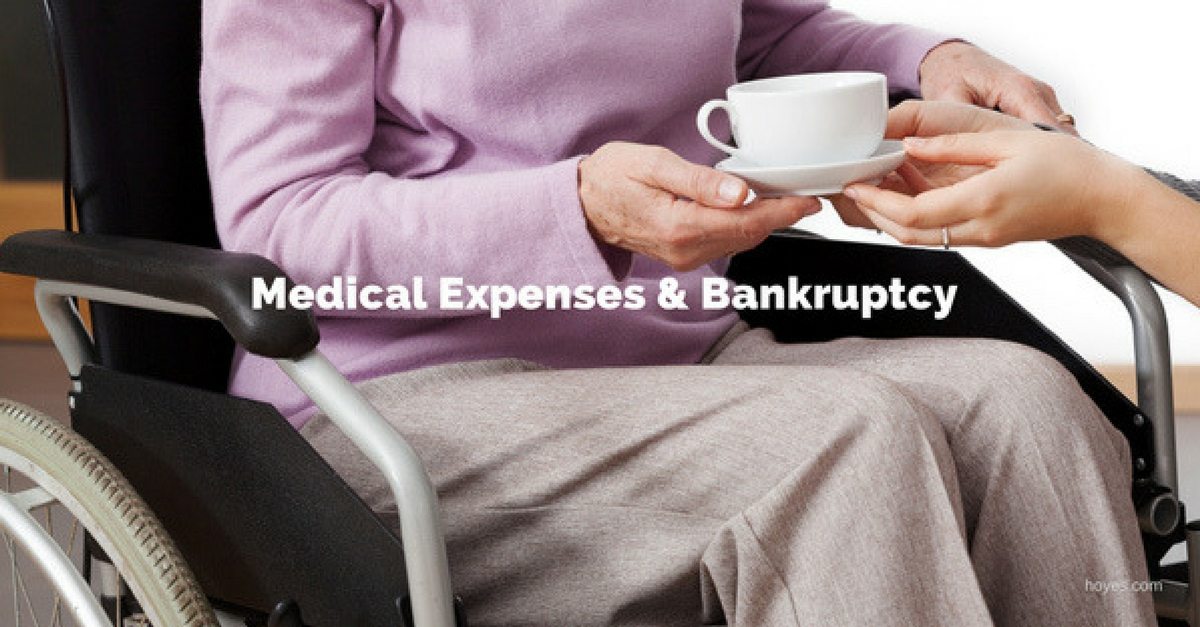
“Medical bankruptcy” is very common in the United States when high medical bills force people into bankruptcy. We assume that because Canada has “free” health care medical bankruptcy doesn’t occur here, but that’s only partially true. While it is true that hospital visits and doctor’s bills are covered by Canada’s health care system, there are other medical costs associated with illness and healthcare issues that can cause severe financial problems. In fact, 19% of all insolvencies list some form of health issue whether medical costs, illness or injury as a primary cause of bankruptcy.
Table of Contents
Loss of Income A Primary Factor
Medical costs can take on many forms beyond the out of pocket costs for medicine and equipment not covered by government insurance or work benefit programs. Other demands on your cash flow might include moving expenses, household upgrades, and retirement home expenses.
The most common medical “expense” however is the loss of income while you are off work recovering from a medical condition. Unless your employer’s health insurance “tops up” your wages, sick benefits from Employment Insurance will only cover a portion of your salary, and that may cause you to rely on credit to pay your bills to pay for living expenses as well as health costs while you are unable to work.
Almost as common is taking time off work to care for family members. It is now very common for adult children to become caregivers for aging parents, taking time off work to drive them to doctor’s appointments and caring for them at home while they convalesce. The time off work is costly, but if you are also paying for gas and parking fees to take them to doctor’s appointments, and then buying medical supplies. Health care costs can quickly add up.
Declaring Bankruptcy for Medical Bills: Issues You Should Know
So what should you do if you used credit to survive a medical issue and can’t pay off your medical bills and credit cards? Should you file for bankruptcy?
The first and most important step is to focus on your recovery. The weight of creditors’ phoning while you are home recovering is very stressful, but there is a silver lining: if you aren’t working, creditors can’t garnishee your wages until you return to work, so while you recover it may be wise to focus on getting better, and to not worry about your debts. Of course that’s easier said than done.
The next step is to get your monthly cash flow back into balance (not including your debt costs) so you no longer have to rely on credit. If your medical condition will prevent you from returning to work, it may be necessary to downsize your lifestyle by moving to a smaller house, or moving in with relatives to balance your budget. If you are incurring caregiver costs, you should talk to siblings and other family members about sharing the burden, including the financial costs. Research all possible community resources.
Once your budget is in balance, if you still have overwhelming debt, a consumer proposal or personal bankruptcy is an option.
Can medical debt be discharged in bankruptcy?
Here’s what you need to know about bankruptcy and medical costs:
- Unsecured debts are included in a bankruptcy, including hospital fees and other unpaid medical bills;
- While bankrupt all income you receive is subject to the surplus income rules, so if you are receiving sick benefits or a disability income, that is part of your income;
- Medical expenses that you pay directly can be used to reduce your income, so if you are paying for prescriptions or other expenses, those expenses will reduce your surplus income obligations, subject to certain conditions that your trustee will explain.
- If you are receiving collection calls for unpaid medical bills, bankruptcy provides an automatic stay of proceedings that stops creditor actions.
How can a consumer proposal eliminate medical bills?
If you’ve returned to work and your income has returned to pre-illness levels, you may find your income high enough to trigger extra payments in a bankruptcy known as surplus income. In this case, an alternative to bankruptcy is to consider a consumer proposal. A consumer proposal is a repayment plan arranged with all your unsecured creditors to repay what you can afford.
The end result you are looking for is that you receive a fresh financial start. So if you have accumulated significant debts due to medical expenses or time off work, and eliminating those medical debts will help you balance your budget so you can continue with your recovery or manage your care obligations, then either a bankruptcy or proposal may be worth considering.
If you are uncertain as to whether bankruptcy is the right option for you but are struggling with debts related to medical costs, please contact our office for a free no-obligation consultation. We’ll explain all your options so you can make an informed decision.






